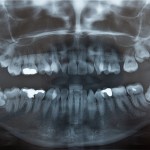
The removal of lower third molars is a very common surgical procedure. Neurosensory deficits ranging from anaesthesia, hypoesthesia, hyperesthesia, or dysaesthesia are a recognised adverse outcomes and have been reported in prevalence ranging from 0.1% to 22% for lingual nerve (LN) and 0.26% to 8.4% for inferior alveolar nerve (IAN). The aim of this review was to address the question, What are the available treatment modalities and their outcomes of neurosensory deficit after lower third molar surgery?
The authors searched the PubMed, Ovid, Embase, and the Cochrane Library databases without language or date restrictions together with a manual search of 3 key maxillofacial journals. Clinical trials or case series involving at least 5 cases in human subjects reporting the treatment outcome of IAN and/or LN deficit in sufficient detail were included.
Ten articles were included. Nine studies were retrospective and only 1 was a prospective study. There were no randomized controlled clinical trials. Four studies reported treatment on the LN, One study reported treatment on the IAN, and five studies reported treatments on the IAN and LN.
They found
- Six treatment methods for LN or IAN deficit
- Four surgical treatments ( External neurolysis, direct suturing, autogenous vein graft, and a Gore-Tex tube as a conduit). Significant improvement after surgical treatment ranged from 25% to 66.7%.
- Two nonsurgical treatment (Acupuncture and low-level laser therapy) modalities that were found to have produced significant improvement in sensation after treatment in more than 50% of subjects.
- There was insufficient information to determine the best timing of treatment of nerve injury after third molar surgery.
They concluded
Most treatments showed an improvement in sensation but the outcomes were variable. Complete recovery was uncommon in all kinds of available treatments.
Leung YY, Fung PP, Cheung LK. Treatment Modalities of Neurosensory Deficit After Lower Third Molar Surgery: A Systematic Review. J Oral Maxillofac Surg.2011 Dec 16. [Epub ahead of print] PubMed PMID: 22177820.
Comment
While most of the treatments identified in this review showed some improvement in sensation, the inherent bias in the available studies and lack of standardised neurosensory assessment highlights the need for well designed prospective studies in order to develop evidence-based approaches to the management of neurosensory deficit after lower third molar surgery.
